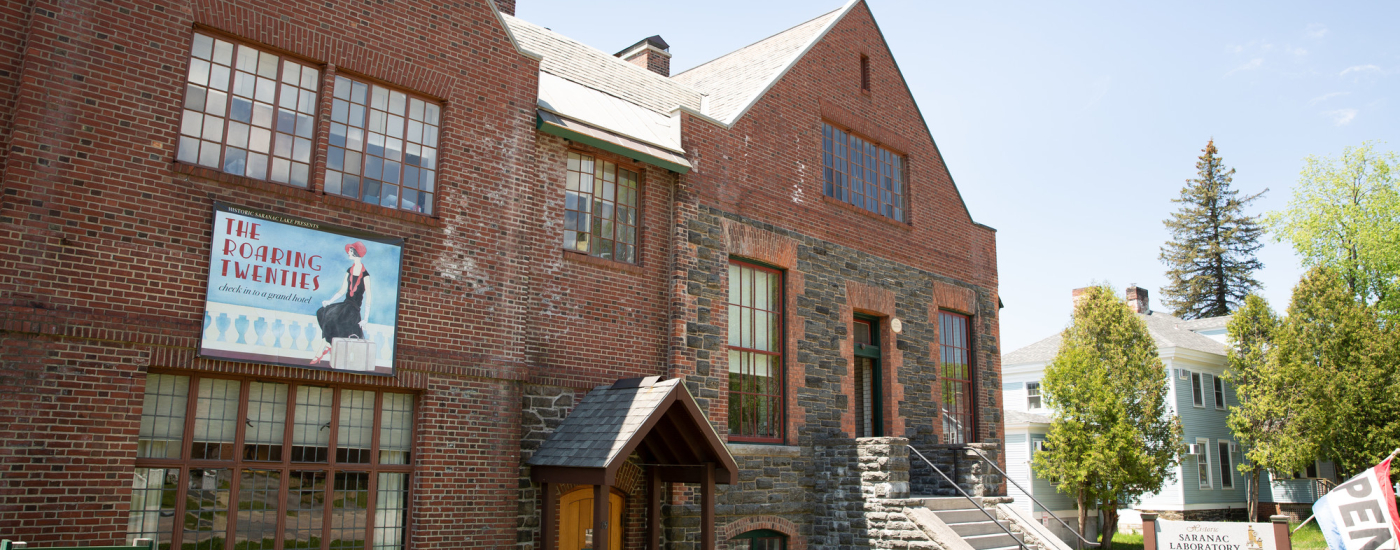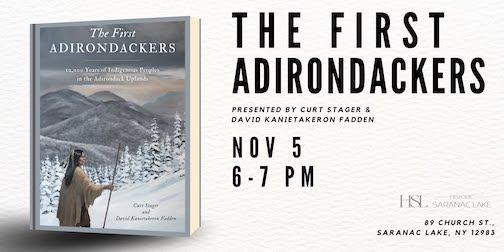
November 05, 2025
The First Adirondackers
About
The First Adirondackers: 12,000 Years of Human Presence in the Adirondack Uplands
When: Wednesday, November 5, 6:0p.m. - 7:15p.m.
Where: Historic Saranac Lake, John Black Room, 89 Church St., Saranac Lake, 12983
Join Historic Saranac Lake for a special presentation by David Fadden and Curt Stager, who will be presenting on their new book The First Adirondackers.
The First Adirondackers challenges the widespread, long-standing belief that the Adirondack uplands of northern New York were uninhabited before the arrival of European colonizers. Nothing could be farther from the truth.
Through local Indigenous traditions and supporting findings by natural science, authors David Fadden and Curt Stager expose, document, and honor the long human presence in the Adirondacks, helping not only to redefine what it means to be an Adirondacker, but also contributing to a more complete understanding of America itself.
Curt Stager is a professor of natural sciences at Paul Smith’s College in New York. New York State’s Carnegie-Case Science Professor of the Year in 2013, he cohosts Natural Selections on North Country Public Radio and has published in periodicals such as Science, National Geographic, and The New York Times.
David Kanietakeron Fadden grew up in the tiny Adirondack Mountain hamlet of Onchiota with strong ties to the Mohawk community of Akwesasne. He is a recognized painter, traditional storyteller, illustrator, writer, and sculptor. His subjects range from traditional Haudenosaunee teachings to intimate and inspired portrayals of community members and his work has been featured in exhibitions throughout the Northeast as well as in books. Much of his work can be seen at the Six Nations Iroquois Cultural Center in Onchiota, a family-run facility founded in 1954 by his grandparents. Fadden continues to maintain this unique museum that welcomes visitors from around the world, breaking down stereotypes and promoting accurate, inspiring understandings of Mohawk and Haudenosaunee culture.
